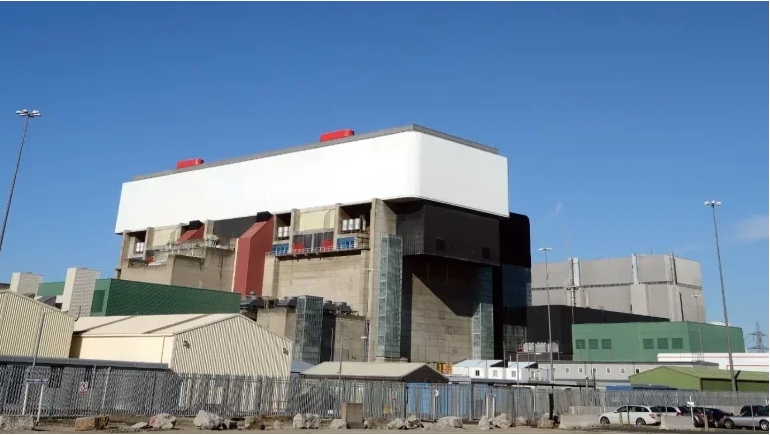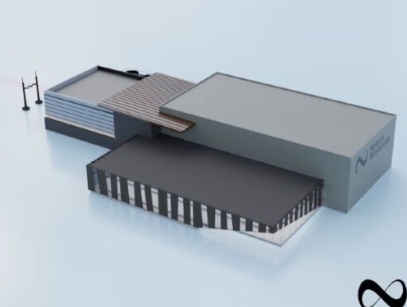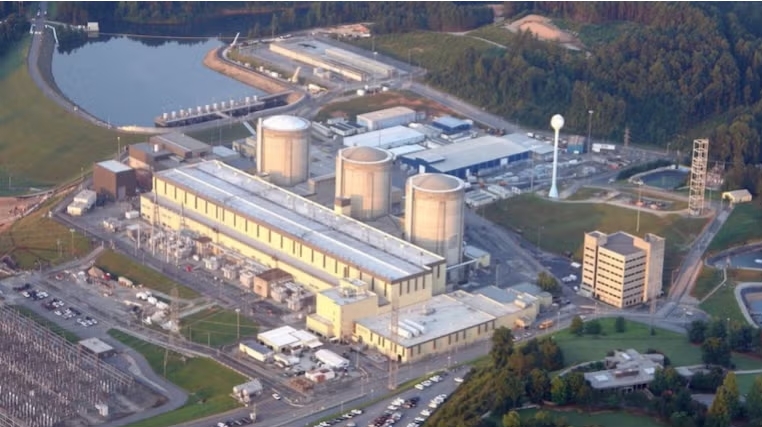
Nuclear fuelled industry is coming a step closer to reality with a project that will supply hydrogen to an asphalt plant. The Bay Hydrogen Hub is being supported by a £6.1m (US$7.4m) commitment from the UK’s Department for Energy Security and Net Zero. A consortium comprising EDF, National Nuclear Laboratory (NNL), and Vulcan Burners will match the government funding bringing the total to £15m (US$18.2m).
Located at Hanson’s Criggion asphalt plant in Wales, the full-scale net zero asphalt project is designed to demonstrate zero-emission asphalt production using nuclear-derived hydrogen. Hanson is a business unit of Heidelberg Materials.
Nuclear industrial showcase
Under the plans revealed so far, electricity and steam from the Heysham 2 nuclear power plant will be deployed in a newly-built and on-site solid oxide electrolysis cell (SOEC) electrolyser. There it will be used to generate hydrogen to replace the mix of fossil fuels currently used in asphalt production at Criggion. Hydrogen from Heysham 2 in Lancashire will be transported to mid-Wales and Criggion via high-capacity Type 4 composite road tankers.
Initially, the project work will focus on developing a final design for the hydrogen production, distribution, and end-use technology. Fuel switching to net zero hydrogen asphalt production at Criggion will follow. Coupling SOEC with nuclear heat and electricity will reportedly increase hydrogen production efficiency by more than 20% compared to proton exchange membrane (PEM) electrolysis, allowing the project to deliver low-carbon, and low-cost hydrogen.
Rachael Glaving, EDF Generation Strategic & Commercial Development, said of the project: “This is a fantastic project and a great opportunity for EDF to demonstrate how nuclear can contribute to the energy transition…[it] highlights how future nuclear stations might not only provide electricity but also heat which in this case will be used to support hydrogen production more efficiently than is currently possible.”
According to the consortium, this technology has not yet been physically demonstrated anywhere in the world so far, making the project a ground-breaking development. It will also be a first-of-a-kind demonstration of hydrogen as a fuel at an asphalt plant.
Commenting on the development Hanson CEO, Simon Willis, said: “Nuclear power-derived hydrogen has the potential to be a complete game-changer for decarbonising asphalt and cement production.”
He added: “We have already successfully shown that hydrogen can be used as part of a net zero fuel mix at our cement works in Ribblesdale, Lancashire, but its use as a fuel at an asphalt site has not yet been physically demonstrated anywhere in the world.”
With the potential for around 3,300 tonnes of carbon savings per year by using nuclear hydrogen at the Criggion site alone, the hydrogen pilot could lead to the decarbonisation of multiple Heidelberg Materials asphalt and cement sites in the UK and elsewhere. Learnings could be leveraged to more than 250 sites in the UK alone and potentially lead to future nuclear new build projects.
The funding round follows on from a Department for Business Energy and Industrial Strategy award of almost £400,000 (US$486,000) in funding for a feasibility study on what was then called the Bay Hydrogen Hub – Hydrogen4Hanson project. The feasibility study was executed by a consortium which again included Hanson UK, NNL, and EDF Generation, as well as Hynamics, CERES Power, and EDF R&D. It was for an initial feasibility study, with the future target of demonstrating the technology at megawatt scale by 2025.
As Patrick Dupeyrat, EDF UK Research & Development, said: “Decarbonising UK industry is one of the biggest challenges the nation faces in the push for Net Zero – using nuclear power to produce hydrogen which can power the carbon-heavy asphalt industry is a logical thing to do. Doing so will help create the nation’s new nuclear future with new innovative technology and could help safeguard jobs.”







